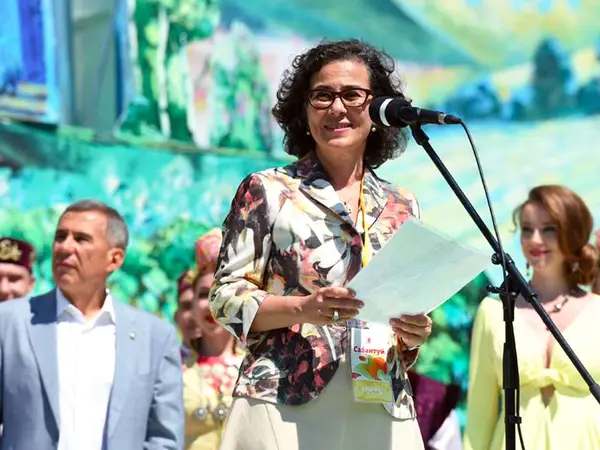A coalition of 25 human rights organizations have urged UN Deputy High Commissioner for Human Rights Nada Al-Nashif to postpone her upcoming visit to Iran.
The visit will take place just after Iran executed five prisoners it accused of collaborating with Israel in a sham trial. In recent weeks, the authorities have been hanging an average of three persons a day.
In a joint letter released Monday, these organizations underlined the responsibility of the Office of the United Nations High Commissioner for Human Rights’ (OHCHR) to prevent its legitimate engagement with the Islamic Republic from becoming a tool to undermine critical mechanisms for advancing human rights in Iran.
They said they acknowledge the value of dialogue and engagement and the legitimate interest of OHCHR in engaging with authorities from all countries on human rights challenges but some factors including the timing of the visit which is only a few weeks before the start of the 55th session of the UN Human Rights Council (HRC “raise very serious concerns”.
“Informed by past experiences, we can anticipate that Iranian authorities will attempt to instrumentalise their formal engagement with your Office and use it as a propaganda tool to undermine support for these existing and very needed monitoring, reporting and investigative mechanisms established by the HRC,” the letter said while urging Al-Nashif to reconsider the timing of her visit and implement a robust strategy to mitigate this risk.
Other civil society groups, political figures, and human rights activists have also made similar appeals to Al-Nashif.
In a message addressed to Al-Nashif on her Instagram Thursday, Iranian Peace Nobel Laureate Shirin Ebadi pointed out that ahead of her visit to Iran at least four prisoners including a protester, Mohammad Ghobadlou, and a Kurdish political prisoner, Farhad Salimi, were executed last week after unfair trials and in violation of the Islamic Republic’s own laws.
Ebadi urged Al-Nashif to cancel her visit in protest to “extra judicial and increasing executions to prevent the regime from taking advantage of it and using it for propaganda.
Some have also urged the UN official to refuse to wear the hijab during her visit as Iranian authorities require.
“Remember that dozens of women were killed in the struggle against compulsory hijab, and dozens of men who stood up together with Iranian women lost their lives in the hands of the Islamic Republic when you wear a headscarf to please the officials of the Islamic Republic,” some family members of the victims of the downing of Flight PS752 by Revolutionary Guards (IRGC) wrote in an open letter to Al-Nashif.
The Campaign to Free Political Prisoners in Iran urged Al-Nashif to set four preconditions for her visit to Iran, namely, independent visits to prisons, independent meetings with political prisoners sentenced to death, and to publicly announce that she will not wear the hijab during her visit.
UN Human Rights Office spokesperson Marta Hurtado told Radio Farda, the Persian Service of Radio Free Europe in Prague on Tuesday, that the aim of Al-Nashif’s visit to Iran is investigating the possibility of chances for improvement of human rights situation in Iran. She added that it is important to look for ways to discuss these concerns, she said.
In June 2023 Al-Nashif presented a report to the Human Rights Council in Geneva on Wednesday saying that the situation in the Islamic Republic is aggravated against the backdrop of continuously worsening socio-economic conditions and sanctions. However, Tehran always engaged in serious rights violation even during better economic periods.
The report examined developments since the death of 22-year-old Mahsa (Jina) Amini in September in the custody of the morality police that sparked widespread protests throughout the country and said there had been a spike in death sentences and executions during that period.
